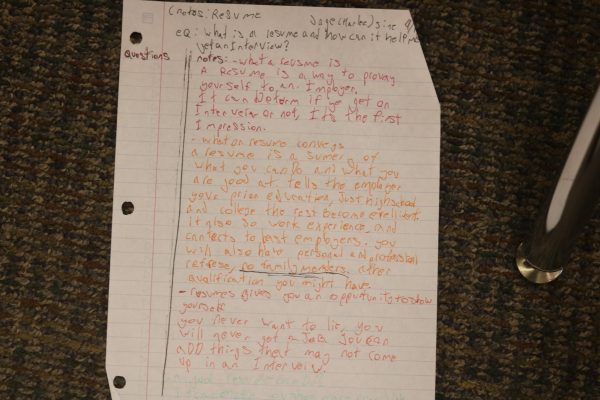Granger’s SAGE Test F rating frustrates students and teachers
A MEASUREMENT of intelligence, the SAGE testing system has been a form used by the Utah district for many years. However, this form has been recently debated of its true importance. Recently, Granger has been graded as an ‘F’ school.
To elaborate, “Based on SAGE, the school has received a 38.1% average, ranking in the lowest 3% of performance in Utah schools,” Dr. Dunn, the principal of Granger High, said.
However, these test do not measure the full potential and complete measurement of student intelligence. “I don’t like it. The ‘F’ does give us a grade, but many factors are not included like different demographic results,” Dr. Dunn said.
These results then lead to questioning the effort of students and staff. “We need to persist on improvement for staff and students academically. Students need to come to school on time with a prepared mindset,” Dr. Dunn said.
The curriculum is not, however, the conflict. “The curriculum needs to be better understood by the students and their effort to comprehend,” Dr. Dunn said. The academic subjects are not in need of modification, but rather the students’ effort to strive needs attention.
“I feel that students don’t put effort on academics, and they put more attention towards their social life.” Diana Ruiz (9) said. Kids at Granger are not as appalled by this rating as expected.
“I’m surprised, yet, I’m not that surprised. Most people that I know don’t strive for all A’s. And since C’s are considered an academically passing grade, most think that receiving C’s is successful. If that is permanently implanted in their mindset, they won’t put in the extra effort for testing either,” Ruiz said.
Improvement-wise, she believes the staff and the students both need to put an effort on the curriculum. “Coming from my old school, I saw that the teachers didn’t have high expectations for students to succeed. I believe that if the students are having a difficult time learning the curriculum, the staff needs to attend to this conflict, and consider modifying said program of study,” Ruiz said.
Tension regarding the role of SAGE tests in schools has existed for years. Take the 2014 results, for example.
“For the 129 high schools in the state, 5% received an A-grade, 45% received a B-grade, 30% received a C-grade, 11% received a D-grade, and 9% received an F-grade,” as stated in a 2014 study conducted on school grades as reported by the Deseret News.
In that Deseret News article, Liz Zentner, president of the Utah Parent Teacher Association, is quoted as saying, “The grades just aren’t fair. One grade just isn’t fair. It doesn’t tell the whole story of all the great things that are going on in schools,” Zentner said. “I don’t pay any attention to these school grades. I don’t think they’re valid.”
Zentner’s opinion continues to resonate with today’s students.
“It puts a negative light for other schools to look at,” Leilani Zamora (10) said. “Who likes common core tests? SAGE testing does not address the intelligence of Granger High students. The Granger High debate team is exceptional, and there are many students with passing grades in A.P. classes. An ‘F’ rating is not a representation for each individual student,” Dr. Tuckness said. “There are those who are academically oriented and those who are not.”
“I don’t teach a class that has a SAGE test, however, I do know teachers that do. SAGE only represents how well students can take tests. Standardized testing often has some bias, such as the format can cause students with certain ethnic backgrounds to score higher,” Ms. Neibaur, a Skills for Life teacher and the leader of student government, said.
“I believe the system should use benchmarks as the main form of testing. I would prefer they would only have one. I’m just not a big fan of standardized tests,” Neibaur said.
The majority of the staff believes that the curriculum needs modification in the criteria of the tests. “Tutoring and mentors within classes can benefit those students who are in need of help. Some need that extra help. We as well need more engagement, it’s not only the curriculum that needs modification, but also the teaching style, classroom sizes, and the demographics with the class sizes,” Neibaur said.
Regardless of the shortcomings of standardized tests, Granger Lancers will continue to be evaluated based on SAGE tests, so students and staff should work together to improve performance.







